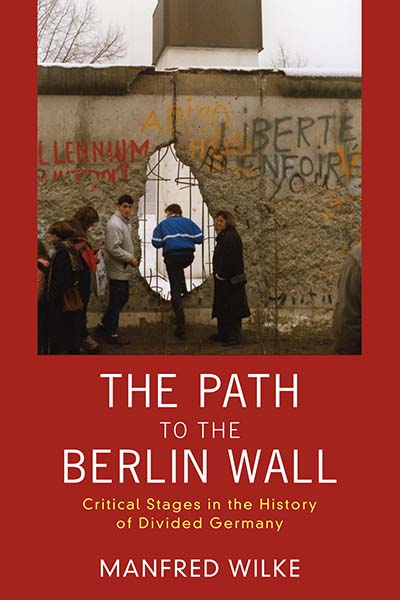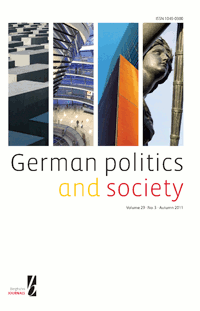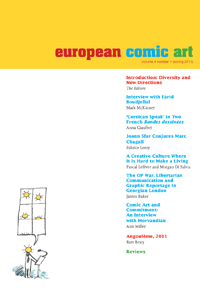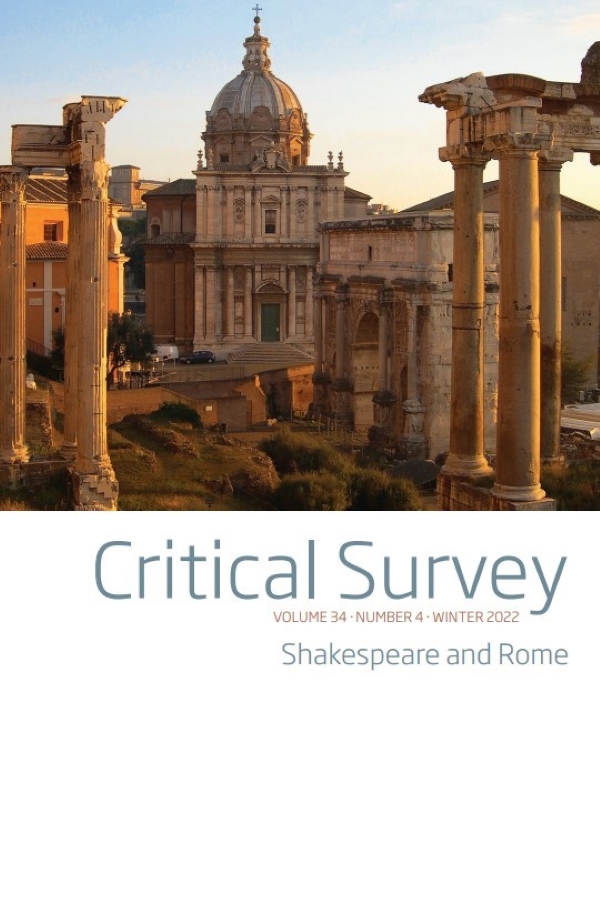Continue reading “Berghahn Journals: New Issues Published in May”
Tag: german politics and society
Berghahn Journals: New Issues Published in September
Berghahn Journals: New Issues Published in June
Berghahn Journals: New Issues Published in April
Berghahn Journals: New Issues Published in December
Berghahn Journals: New Issues Published in July
Hot Off the Press – New Journal Issues Published in April
Hot Off the Press – New Journal Issues Published in January
The aim of this special issue is to bring a critical discussion of affect into debate with the anthropology of the state as a way of working toward a more coherent, ethnographically grounded exploration of affect in political life.
Journeys – The International Journal of Travel & Travel Writing
This issue is composed of articles on a range of topics related to tourism and travel writing. It also includes a conference review and a book reviews section.
This special issue is titled “Policy innovation, regional integration and sustainable democracy building: The Millennium Development Goals (MDGs) as challenges and vehicles.” This issue presents articles that discuss the added value of regions to sustainable development strategies. It discusses development processes and governance both within and between regions. In doing so, it examines how both regionalism and interregionalism affect sustainable development in broader political contexts.
This issue includes articles on a range of topics.
This special issue looks at the rise of Green Politics in Germany.
The articles in this special issue focus on portrayals of the First World War in comics and cartoons.
The Fall of the Berlin Wall
The Berlin Wall was both the physical division between West Berlin and East Germany from 1961 to 1989 and the symbolic boundary between democracy and Communism during the Cold War.
The Berlin Wall was erected in the dead of night and for 28 years kept East Germans from fleeing to the West. The fall of the Berlin Wall happened nearly as suddenly as its rise. On the evening of November 9, 1989, an announcement made by East German government official Günter Schabowski stated, “Permanent relocations can be done through all border checkpoints between the GDR (East Germany) into the FRG (West Germany) or West Berlin.” Crowds of euphoric East Germans crossed and climbed on to the wall in celebration. Soon the wall was gone and Berlin was united for the first time since 1945. “Only today,” one Berliner spray-painted on a piece of the wall, “is the war really over.”
———————————————————————————————————
Browse Berghahn relevant titles:
 THE PATH TO THE BERLIN WALL
THE PATH TO THE BERLIN WALL
Critical Stages in the History of Divided Germany
Manfred Wilke
Translated from the German by Sophie Perl
“…constitutes a superlative model of combining biography with the study of nationalism. The latter constitutes the most novel contribution of this well-researched, straightforward historical depiction of Kohl’s ideology and its impact upon the continuing development of German national identity… Recommended” · Choice
Hot Off the Presses – New Journal Issues Published in September & October
Anthropology in Action: Journal for Applied Anthropology in Policy and Practice
Volume 22, Number 2
This issue features articles focusing on issues related to the Research Excellence Framework, the impact agenda, and debates surrounding open access. On December 18 2014, the results of the U.K.’s Research Excellence Framework (REF) evaluation exercise were released. This was made more complex by the fact that for the first time, 20% of the overall scoring of a unit of assessment was attributed to research ‘impact’. This issue of Anthropology in Action is dedicated to exploring issues raised by these events.
Continue reading “Hot Off the Presses – New Journal Issues Published in September & October”








































